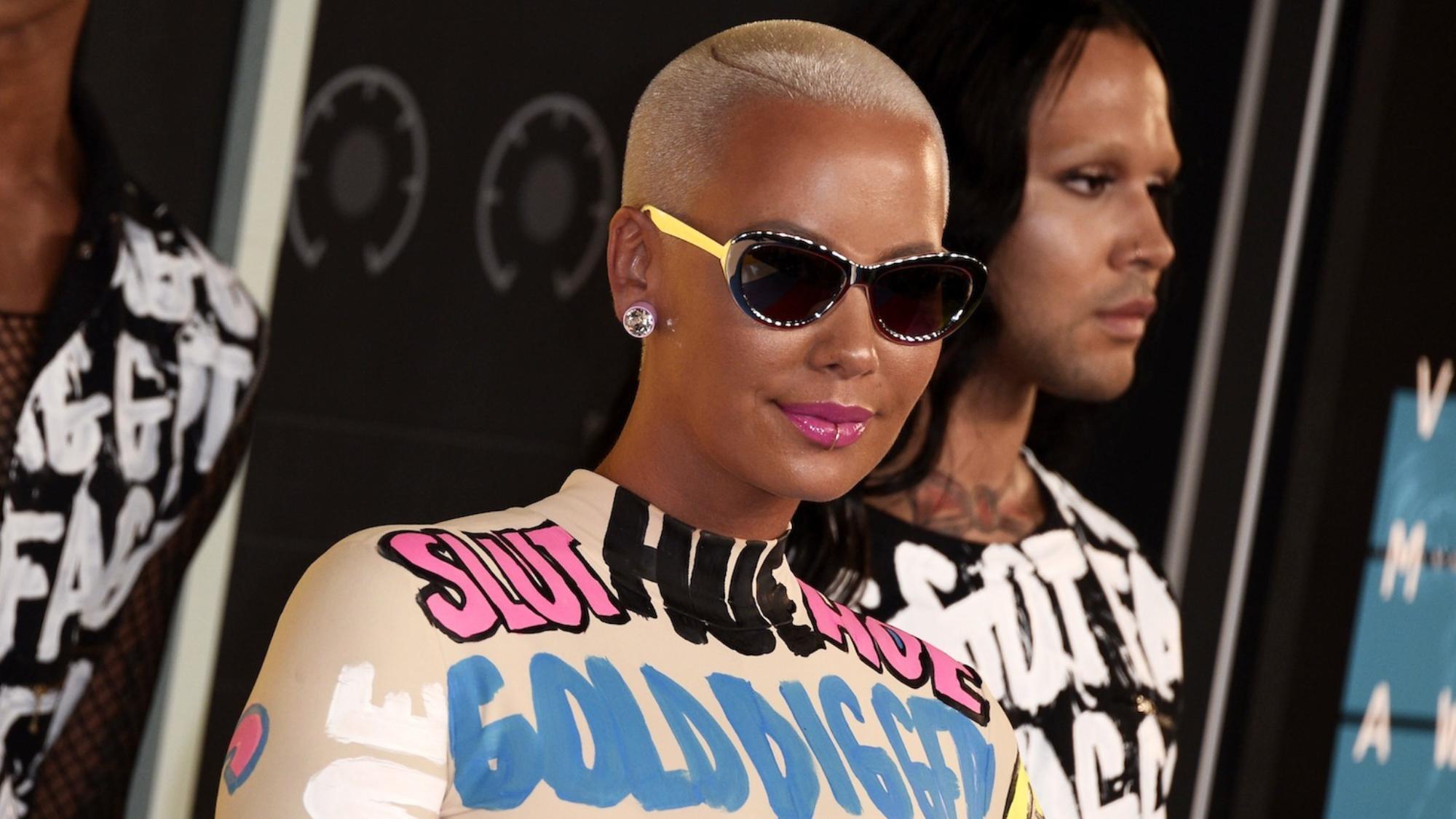Before Channing Tatum landed his breakout role in 2006’s Step Up, he had a modeling contract, which lead to Abercrombie & Fitch jobs, Dolce & Gabbana campaigns, and Pepsi commercials. Before he did any of that, he worked as as a stripper for eight months in Tampa, Florida. Tatum doesn’t appear hindered by a culture that largely stigmatizes sex work and silences sex workers; in fact, he teamed with celebrated director Steven Soderbergh to produce Magic Mike and its supersized sequel. Even though Tatum is clearly forthright enough to make two feature films about his experiences in the adult entertainment industry, he doesn’t seem to experience that same stigma — the instances in which he’s been referred to as “former stripper Channing Tatum” are in connection to the lucrative film franchise he’s building, one that’s already netted over $300 million.
This has not been the case for another former stripper, entrepreneur and activist Amber Rose. Rather, the epithet still precedes Rose’s name in many interviews, like the profile GQ ran in October that reduced her to a “teen stripper turned megalomaniac muse,” as well as “Kanye’s infamous ex” and “Wiz Khalifa’s baby mama.” Rose (rightly) considers this double standard sexist. “No one gives a fuck that Channing Tatum was a stripper. He’s an established actor who’s at the Vanity Fair parties and the Oscars,” she told The Daily Beast during the South by Southwest festival this weekend, “but for me, no matter how far I go in my life, I see these stories that keep referring to me as a ‘former stripper.’ No one says ‘former stripper’ about Channing Tatum, or ‘former McDonald’s worker’ about Brad Pitt. No one does that to men.”
Rose also theorizes that the reason the shadow of her sex-work persists in the press is that it hasn’t taken a more socially palatable form — just as it hasn’t for her recent ally, Kim Kardashian. “They come at me and Kim so hard because I was a stripper and she had a sex tape,” Rose explains, but “if we could sing, it would be OK if we were on stage half-naked. We all love Beyoncé, but she’s on stage half-naked and twerking all the time, yet people say, oh, she has talent so she’s able to do that. We don’t have the talent that Beyoncé has, so we get criticized as former sex workers,” Rose says.
In an extended essay published on her personal website on International Women’s Day, Kardashian-West discussed how the tape she made (which was leaked without her consent) still impacts the discourse surrounding her every move. “I lived through the embarrassment and fear, and decided to say who cares, do better, move on. I shouldn’t have to constantly be on the defense, listing off my accomplishments just to prove that I am more than something that happened 13 years ago,” she wrote.
.@DaRealAmberRose goes all in on a woman’s right to say ‘no.’ https://t.co/3A0ZnMJaN8
— Its Not You, Its Men (@NotYouItsMen) February 20, 2016
Rose is fighting to de-stigmatize sex work and dismantle sexism through immediate dialogue and hypervisibility. She recently invited Kardashian to take part in an upcoming iteration of her SlutWalk, an empowering protest march that unites women who have been subjected to sexual harassment, assault, and abuse. On a talk show last month, she schooled co-hosts Rev Run and Tyrese, who seemed to be under the impression that clothing choice equates to consent. And when GQ ran that trivializing and sexist profile, Rose wasn’t shy about letting the magazine know why its words and implications were harmful. “I was so pissed off and went after their necks because I don’t care if I’m ever in GQ again. Everybody had my back, and now people get it. They don’t label me like that anymore,” she told The Daily Beast.
“Unlike [Dita] Von Teese or [Lady] Gaga, Rose has chosen not to distance herself from her roots in sex work, nor has she repackaged her identity in couture outfits,” a recent i-D piece exploring the problematic popularization of strip culture argued. “Instead, Rose is on a sortie to prove that owning one’s body and sexuality is an act of feminism, not an invitation for sexual harassment.”
Credits
Text Emily Manning
Photography Paul Buck via EPA
